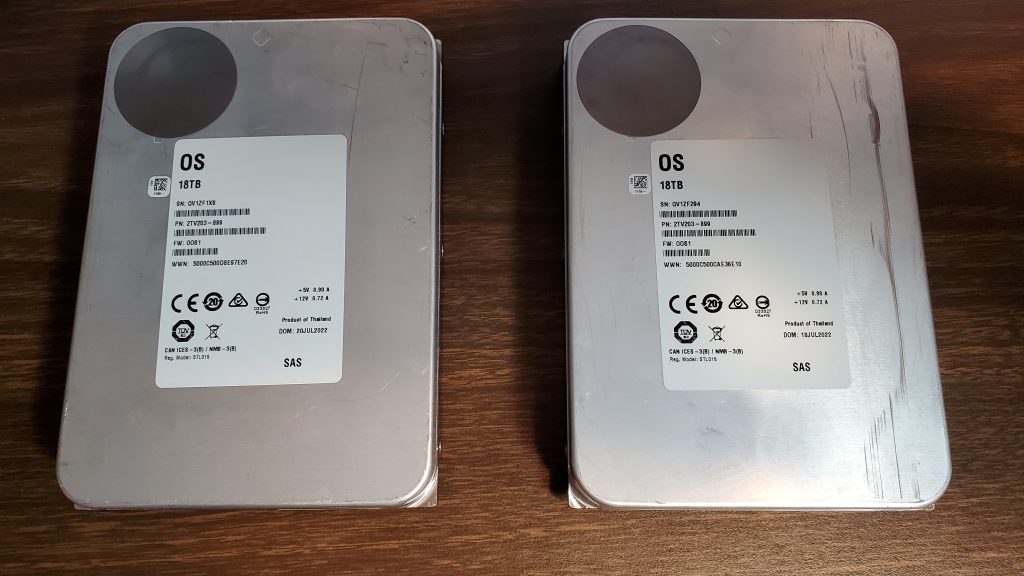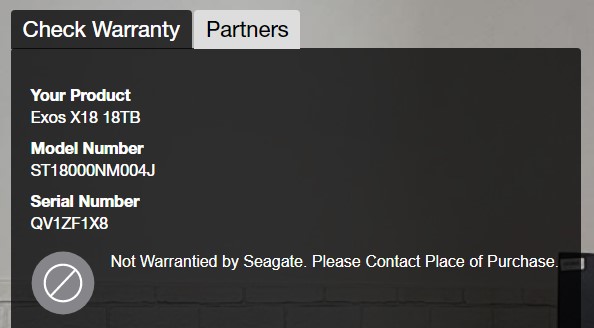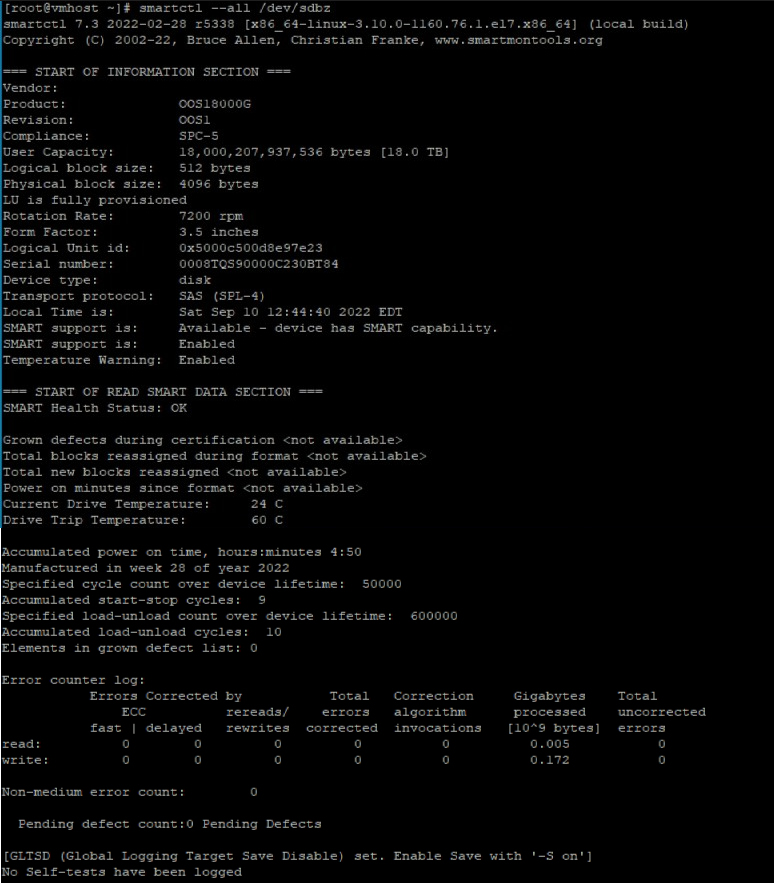I’m always looking for deals on new drives to expand the Chia farm. Typically this involves constantly browsing eBay for new/cheap listings, ending auctions without many bids, or other outlets such as reddit’s /r/homelabsales. In doing so, I stumbled across something new – white label drives.
The drives are being sold by Digital Spaceport. He’s a popular Youtuber focusing around enterprise computing gear and, you guessed it, Chia farming. They do not bear a brand name at all. An 18TB SAS drive is selling for $209 or $11.62/TB. It’s easy to find used 10TB or 12TB drives around the $10/TB mark; however, these are 18TB and brand new. He explained that he believes the drives are lots being returned from large-scale companies due to defects, primarily cosmetic (scratches, dings, dents), during a random sampling of the lot. It seems plausible, though I have no way to confirm this of course. Curious to learn more, I purchased a few to check out.
I received the drives well-packed and in good shape. They appear identical to the Seagate Exos line of drives with the same case style and large round silver sticker in the top-left corner. The label says “OS” instead of a brand name, which I’m told means “Off-Spec”.

There are no model numbers anywhere. They do have serial numbers that are consistent with that of Seagate drives. Out of curiosity, I entered one of the serial numbers in the Seagate warranty check webpage. Of course I’m not expecting it to have a warranty but wanted to see what it would return. It identifies the serial number as a “Exos X18 18TB” drive with model number “ST18000NM004J”. This confirms they are indeed Seagate drives. The mysterious part to me is why they’re labeled this way instead of Seagate just selling them as a recertified or repaired product – which is something they do sell.

Now it’s time to give them a thorough test. One way to do this would be to run badblocks on the drive for a while and see if it finds anything erroneous. I don’t care enough to spend the time doing that considering I’m just using them for storing Chia plot files, nothing that can’t be replaced if one fails out. I pulled back the drive data with smartctl prior to partitioning and filling. They do not have the original Seagate firmware, but are showing almost 0 power-on hours and the correct capacity.

I have since filled each drive with Chia plots and have been farming for a little while. I have not had any problems whatsoever. The performance seems consistent with “regular” drives, they run nice and cool, and there have been no errors flagged in smartctl. Unfortunately, we won’t know how they’ll last long-term. My hope is that I will see 10 years out of them like I expect to see in standard drives. Time will tell and I’ll be sure to come back and provide any updates along the way.
Update Oct 24, 2022 – The drives are still running great without issue. I’ve since purchased quite a few more. I now have a total of 10x 18TB and 2x 16TB white label drives.